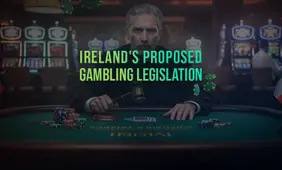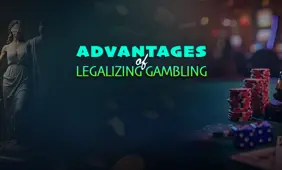Industry Experts Analyze Macau's Junket Regulatory Overhaul

Ryan Hong-Wai Ho, a distinguished lecturer at the Centre for Gaming and Tourism Studies of the Macao Polytechnic University, and Jenny Phillips, an esteemed Associate Professor at the Faculty of Business and Law of the University of Saint Joseph in Macau, collaboratively delve into the intricacies of the evolving junket regulations in Macau's gaming landscape. With their combined expertise in gaming policy, regulation, and the broader hospitality industry, they offer one of the very first comprehensive analyses of the challenges and opportunities presented by the new regulatory framework.
Macau, renowned as one of the world's premier land-based casino markets, is currently undergoing a transformative phase in its gaming industry. This transformation is primarily driven by the newly introduced junket regulations. These regulations focus on establishing a robust legal and regulatory framework, specifically targeting the activities of gaming promoters and their associates.
The implications of these changes are profound: They have not only tightened the licensing requirements for junket participants but have also led to the dismantling of the once-prevalent VIP room system in casinos. This paper delves deep into the consequences of these changes, exploring their impact on both policy and managerial strategies within Macau's gaming sector. Moreover, the shifts in Macau's legal landscape could serve as a blueprint for other jurisdictions considering similar regulatory overhauls.
Macau's New Regulatory Landscape and Transformation of the VIP Sector
The VIP junket sector formerly served as the primary source of income for Macau's casinos (Table 1). The recent enactment of Law No. 16/2022 has replaced the previous Administrative Regulation No. 6/2002, marking a significant overhaul in the regulation of junket operations in Macau. Full information on Macau's gambling regulation junket can be easily found.
This new legislation aims to address the informal practices associated with junkets, such as deposit-taking in VIP rooms and external debt collection. The law also emphasizes the need for stricter licensing requirements for local junket participants – gaming promoters, employees and collaborators, who have been associated with objectionable business practices.
The oversight of the junket sector has been notably intensified due to growing concerns about informal junket activities, VIP rooms managed by third parties, and the payment structure for gaming promoters and their partners. Law No. 16/2022 lays down a range of regulations for junkets and their affiliates, encompassing entry criteria, financial and suitability prerequisites, shared responsibilities, and sanctions for breaches and non-adherence.
| Year | Gross Gaming Revenue (Games of Chance) | VIP Business Revenue (VIP Baccarat) | VIP Business Share of GGR |
|---|---|---|---|
| 2011 | 267,867 | 196,126 | 73% |
| 2012 | 304,139 | 210,850 | 69% |
| 2013 | 360,749 | 238,524 | 66% |
| 2014 | 351,521 | 212,535 | 60% |
| 2015 | 230,840 | 127,818 | 55% |
| 2016 | 223,210 | 118,960 | 53% |
| 2017 | 265,743 | 150,673 | 57% |
| 2018 | 302,846 | 166,097 | 55% |
| 2019 | 292,455 | 135,228 | 46% |
| 2020 | 60,441 | 26,280 | 43% |
| 2021 | 86,863 | 28,489 | 33% |
| 2022 | 42,198 | 10,149 | 24% |
| 2023 (1H) | 80,136 | 20,722 | 26% |
Evolution of Junket Compensation and the Rise of VIP Programs
Historically, Macau casinos compensated junket promoters through either gaming revenue sharing or rolling chip volume. The once-dominant revenue-sharing method allowed junkets to claim at least 40% of net wins from their VIP rooms. However, with third-party gaming operations now prohibited, only the rolling chip commission model remains, capping commissions at 1.25% of net rolling chip turnover. This shift protects junkets from potential gaming losses and may drive them to boost rolling chip sales.
Meanwhile, as junkets recover, casinos are expanding their own VIP programs, offering tiered benefits and rebates. With a reintroduced 5% tax on junket commissions and Macau's push towards a family-friendly image, the territory seems to be curbing junket expansion.
Navigating Regulatory Shifts and China's Anti-Gambling Stance
The new gaming regulations and China's anti-gambling policies have cast a shadow over the local junket sector in Macau. The traditional practices of junket operators, especially their gambler recruitment model, are increasingly conflicting with China's stance against gambling and Macau's image as a top tourist spot.
Recent changes to China's criminal law, penalizing cross-border gambling trips, have global repercussions and highlight the growing divide between national interests and the junket community's traditional methods. This has led to increased regulatory challenges and risks for Macau junkets, causing a significant drop in VIP business. The industry faces a pivotal shift, and to stay competitive, stakeholders must adapt and explore new service areas in both gaming and non-gaming sectors.
Challenges and New Horizons for Junket Employees
The Macau gaming industry, once boasting 235 junket promoters and numerous VIP rooms, has seen a decline, leading to business shutdowns and widespread layoffs. Those involved in VIP room operations have been severely impacted, facing challenges like reduced income, skill mismatches, and biases against their junket background.
While some have found new roles in diverse service sectors, others face unemployment. However, with Macau's push to attract international tourists, these employees can use their customer service experience to find opportunities in gaming and tourism. It's crucial for them to acquire new skills, especially in bilingual communication, data analytics, and CRM technologies, to remain competitive.
Macau’s Junket Decline amid Regulatory Changes
Macau has ramped up its regulatory measures for junket activity since the start of gaming promoters. With new gaming regulations and national oversight, the local junket sector faces tougher challenges. Recent data shows that the number of licensed gaming promoters in Macau has seen a significant decline, from a peak of 235 in 2013 to just 36 in 2023.
Despite their historical significance, the role of junkets in casinos is predicted to diminish, aligning more with the models seen in Nevada and Singapore. Various policy, regulatory, and economic factors influence the future of the unique junket system in Macau. To stay afloat, gaming promoters must navigate an increasingly strict regulatory landscape. Some have even shifted their operations to smaller casinos in Southeast Asia.
Conclusion
The new junket regulations in Macau signify a shift towards a more transparent and regulated gaming industry. While these changes pose challenges for traditional junket operations, they also open doors for innovation and growth. As the industry continues to evolve, it will be interesting to see how gaming promoters and other stakeholders adapt to the changing landscape.





Review this Blog
Leave a Comment
User Comments
comments for Industry Experts Analyze Macau's Junket Regulatory Overhaul